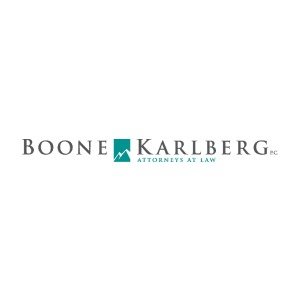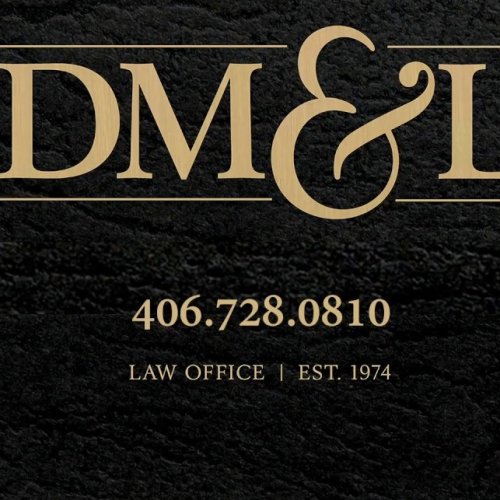Best Insurance Fraud Lawyers in Missoula
Share your needs with us, get contacted by law firms.
Free. Takes 2 min.
List of the best lawyers in Missoula, United States
About Insurance Fraud Law in Missoula, United States
Insurance fraud refers to the act of knowingly misrepresenting the facts, deceiving, or concealing information in order to obtain benefits, payments, or compensation from an insurance company unlawfully. Insurance fraud is a criminal offense and can have severe legal consequences in Missoula, United States.
Why You May Need a Lawyer
Engaging in insurance fraud or being accused of insurance fraud can have serious consequences. If you are involved in a situation related to insurance fraud in Missoula, it is crucial to seek legal advice from an experienced lawyer. A lawyer can help protect your rights, navigate the complex legal system, and provide guidance throughout the legal process.
Local Laws Overview
In Missoula, United States, insurance fraud is governed by both state and federal laws. While federal laws address fraudulent activities spanning multiple states, state laws in Montana specifically address insurance fraud within the state. The key aspects of local laws relevant to insurance fraud in Missoula include:
- Montana Code Annotated (MCA) Title 33, Chapter 1: Insurance Fraud
- Montana Insurance Fraud Control Act
- Penalties and fines associated with insurance fraud
Frequently Asked Questions
1. What actions are considered insurance fraud?
Insurance fraud can take various forms, including but not limited to:
- Submitting false or exaggerated insurance claims
- Intentionally damaging property to collect insurance money
- Providing false information on insurance applications
- Forgery or alteration of insurance documents
2. What are the penalties for insurance fraud in Missoula?
The penalties for insurance fraud in Missoula, United States, may vary depending on the severity of the offense. However, insurance fraud is generally considered a felony and can result in fines, probation, imprisonment, and restitution to the defrauded insurance company.
3. How can I report suspected insurance fraud?
If you suspect insurance fraud in Missoula, you can report it to the Montana Insurance Commissioner's Office or contact your local law enforcement agency. Providing detailed information and evidence will assist in the investigation process.
4. Can an insurance company deny my claim based on suspicion of fraud?
If an insurance company has reasonable suspicion of fraud, they may deny your claim or investigate it further. However, the final determination regarding the validity of your claim rests with the insurance company and may require legal intervention to advocate for your rights.
5. How can a lawyer assist me with an insurance fraud case?
A lawyer experienced in insurance fraud law can assist you by:
- Evaluating your case and providing legal advice
- Negotiating with insurance companies on your behalf
- Building a strong defense if you are accused of insurance fraud
- Representing you in court and advocating for your rights
Additional Resources
For more information or assistance with insurance fraud in Missoula, United States, you can refer to the following resources:
- Montana Insurance Commissioner's Office: www.csi.mt.gov
- Montana Department of Justice: www.dojmt.gov
- Missoula Bar Association: www.missoulabar.org
Next Steps
If you require legal assistance with an insurance fraud matter in Missoula, it is advisable to:
- Research and identify experienced lawyers specializing in insurance fraud cases.
- Schedule a consultation to discuss your case and understand their approach.
- Provide all relevant documents, evidence, and information to your lawyer.
- Follow your lawyer's guidance and instructions throughout the legal process.
- Cooperate fully during investigations and court proceedings.
- Keep open communication with your lawyer and provide updates as necessary.
Lawzana helps you find the best lawyers and law firms in Missoula through a curated and pre-screened list of qualified legal professionals. Our platform offers rankings and detailed profiles of attorneys and law firms, allowing you to compare based on practice areas, including Insurance Fraud, experience, and client feedback.
Each profile includes a description of the firm's areas of practice, client reviews, team members and partners, year of establishment, spoken languages, office locations, contact information, social media presence, and any published articles or resources. Most firms on our platform speak English and are experienced in both local and international legal matters.
Get a quote from top-rated law firms in Missoula, United States — quickly, securely, and without unnecessary hassle.
Disclaimer:
The information provided on this page is for general informational purposes only and does not constitute legal advice. While we strive to ensure the accuracy and relevance of the content, legal information may change over time, and interpretations of the law can vary. You should always consult with a qualified legal professional for advice specific to your situation.
We disclaim all liability for actions taken or not taken based on the content of this page. If you believe any information is incorrect or outdated, please contact us, and we will review and update it where appropriate.









